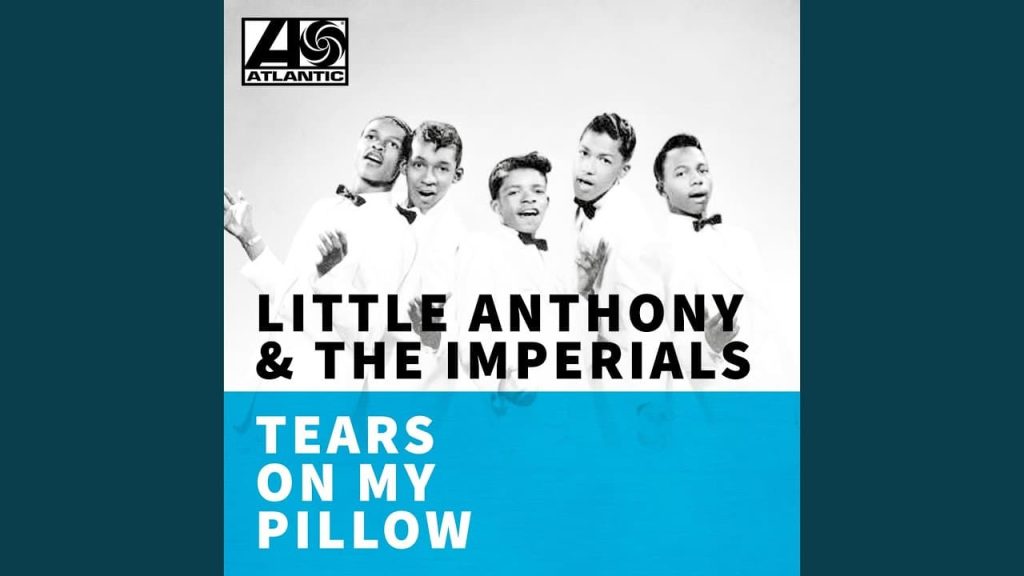
Little Anthony and the Imperials’ “Tears on My Pillow”: A Soulful Serenade of Heartache
“Tears on My Pillow” by Little Anthony and the Imperials is a quintessential doo-wop ballad that captures the deep emotional resonance of unrequited love and heartbreak. Released in 1958, this timeless track became an instant classic, showcasing the group’s smooth harmonies and Little Anthony’s tender, evocative vocals. The song not only marked a significant milestone in the group’s career but also left an enduring mark on the landscape of 1950s and early 1960s music.
The song begins with a gentle, yet haunting, piano introduction that immediately sets a melancholic tone. As Little Anthony (Anthony Gourdine) starts singing, his voice, delicate and filled with emotion, perfectly embodies the sorrow of someone who has been deeply hurt by love. His falsetto, full of yearning, conveys the pain of lost love with an authenticity that resonates with anyone who has experienced heartache. The chorus, with its simple but poignant lyrics—“You don’t remember me, but I remember you”—echoes the feelings of longing and regret, making it a relatable anthem for anyone nursing a broken heart.
“Tears on My Pillow” is driven by its emotive lyrics and the impeccable harmony of the Imperials, who provide a rich, melodic backdrop to Anthony’s lead. The song’s structure is a classic example of doo-wop, with its call-and-response vocals and steady, rhythmic beat that underpins the sorrowful melody. This combination creates a sound that is both soothing and deeply affecting, drawing listeners into the emotional world the song paints.
Upon its release, “Tears on My Pillow” became a massive hit, peaking at number 4 on the Billboard Hot 100 chart and number 2 on the R&B chart. The song’s success catapulted Little Anthony and the Imperials to fame, establishing them as one of the leading vocal groups of the era. The track’s popularity was not just confined to the charts—it became a staple of radio airplay and was beloved by fans across the country. The song’s impact was such that it has been covered by numerous artists over the years, further cementing its place as a classic.
The song’s enduring appeal lies in its universal themes of love and loss. The simplicity of the lyrics, combined with the emotional depth of the delivery, makes “Tears on My Pillow” a song that continues to resonate across generations. It speaks to the timeless experience of heartache, capturing the bittersweet memories that often accompany love lost. The vulnerability in Anthony’s voice, paired with the lush harmonies of the Imperials, creates a sound that is both nostalgic and timeless.
“Tears on My Pillow” also stands as a testament to the power of doo-wop music in conveying deep emotion through simplicity and harmony. The genre, which was characterized by its vocal-driven sound and smooth, melodic lines, found one of its purest expressions in this song. It’s a reminder of an era when music was a primary vehicle for expressing the complexities of human emotion, often with just a few simple words and notes.
In addition to its success in the United States, “Tears on My Pillow” found international acclaim, further expanding the influence of Little Anthony and the Imperials. The song’s timeless quality has ensured its place in the canon of great American songs, and it remains a beloved track for doo-wop enthusiasts and music lovers alike.
In conclusion, Little Anthony and the Imperials’ “Tears on My Pillow” is a poignant, heartfelt ballad that continues to capture the hearts of listeners with its soulful melody and evocative lyrics. The song’s success, both commercially and artistically, is a testament to its enduring power and the skill of the performers. As a staple of the doo-wop genre, “Tears on My Pillow” remains a shining example of how music can convey the deepest of human emotions, making it a timeless classic that will be cherished for generations to come.